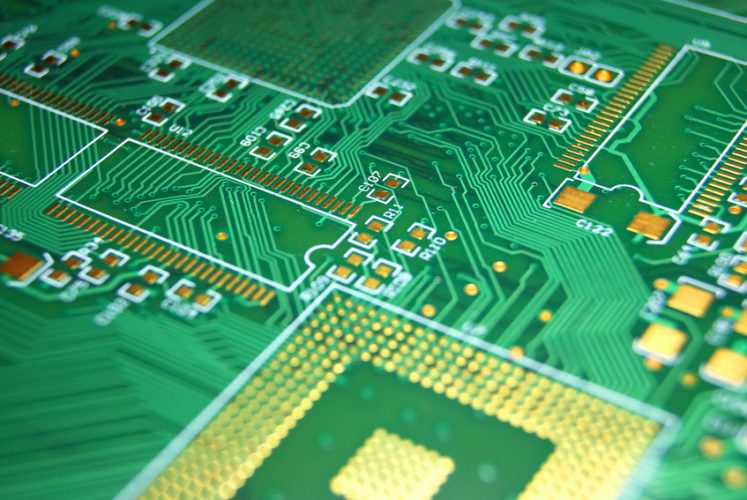
In the fast-paced world of technological innovation, few regions are as crucial to the global supply chain as Taiwan. The island nation is not only home to some of the largest semiconductor companies in the world—like TSMC (Taiwan Semiconductor Manufacturing Company)—but also plays a pivotal role in the manufacturing and development of printed circuit boards (PCBs), which form the backbone of nearly every electronic device in use today. But as geopolitical tensions rise and the race for technological supremacy intensifies, many are left wondering: Can Circuit Board Taiwan outlast the global chip war?
The Strategic Importance of Circuit Board Taiwan
To understand Taiwan’s position, one must first grasp the importance of circuit boards in the electronics ecosystem. Every smartphone, laptop, automobile, and even household appliance relies on a printed circuit board to function. These boards serve as the physical platform on which chips and other electronic components are mounted and connected.
Taiwan is a powerhouse in this domain. The country is home to over 600 PCB manufacturers and suppliers, many of which serve as key partners to global tech giants like Apple, Intel, and Nvidia. From high-density interconnect (HDI) boards to flexible and rigid-flex PCBs, Circuit Board Taiwan encompasses a broad spectrum of advanced manufacturing capabilities. This makes Taiwan indispensable not just to the consumer electronics market but also to emerging industries like electric vehicles (EVs), AI-driven devices, and 5G networks.
The Global Chip War: A Quick Overview
The global chip war is not just about who can produce the most semiconductors—it’s about control, security, and future economic dominance. The U.S., China, South Korea, and the EU are pouring billions into local semiconductor production, aiming to reduce reliance on foreign suppliers. Trade restrictions, such as the U.S. ban on advanced chip exports to China, and China’s retaliatory measures, have only fueled the fire.
Caught in the middle is Taiwan, whose semiconductor and PCB industries are deeply integrated with global supply chains. While this has elevated the island’s economic status, it has also exposed it to tremendous pressure from both East and West.
Challenges Facing Circuit Board Taiwan
Taiwan’s circuit board industry, though robust, is not immune to the shocks of the chip war. Here are a few of the most pressing challenges:
- Supply Chain Disruptions: As countries erect trade barriers and restrict the export of critical raw materials and equipment, Taiwan’s PCB manufacturers face potential shortages. Materials like copper foil, laminate, and rare earth elements are all essential to PCB production and may become harder to source.
- Talent Shortages: With the industry growing at a rapid pace, the demand for skilled engineers and technicians in Taiwan has skyrocketed. However, the talent pipeline is struggling to keep up, which could hamper long-term growth.
- Geopolitical Tensions: Taiwan's unique political status means it is constantly navigating a complex web of international relations. Any escalation between China and the U.S., for instance, could directly impact its ability to conduct business freely.
- Environmental Regulations: PCB manufacturing is resource-intensive and can generate considerable waste. As global pressure mounts for cleaner, more sustainable practices, Taiwan’s manufacturers must adapt quickly or risk falling behind.
Taiwan’s Resilience and Strategic Moves
Despite these challenges, Circuit Board Taiwan remains resilient. The country is taking strategic steps to safeguard its position in the global tech ecosystem.
- Diversifying Supply Chains: Many PCB firms are actively working to diversify their supply chains to reduce dependency on any single country. Some are investing in factories in Southeast Asia, while others are securing long-term contracts with alternative suppliers.
- Investing in Innovation: Taiwan continues to lead in advanced PCB technologies, including embedded component PCBs, chip-on-board (COB) designs, and even organic substrate developments, which are crucial for high-performance computing and AI applications.
- Government Support: The Taiwanese government has rolled out initiatives to support local manufacturers, from tax incentives and R&D grants to vocational training programs aimed at closing the talent gap.
- Strengthening Global Partnerships: Taiwan is also forging stronger ties with Western allies. Companies are entering joint ventures with American and European firms to co-develop next-gen PCB and chip technologies.
What the Future Holds
The global chip war is far from over, and its ultimate outcome remains uncertain. However, one thing is clear: Circuit Board Taiwan is not merely a passive player. It is actively shaping the narrative through innovation, resilience, and strategic diplomacy.
The question isn't just whether Taiwan can outlast the global chip war—but whether the rest of the world can keep up with Taiwan's pace. As the demand for advanced electronics continues to surge, Taiwan’s circuit board industry will likely remain a cornerstone of the global technology supply chain.
If you're interested in how these developments could affect your business or investment strategies, Find Out More about the key players in Taiwan’s PCB market. You can also check over here for in-depth reports on semiconductor trends and go right here to explore potential collaborations with Taiwanese PCB manufacturers.
Final Thoughts
In a world increasingly defined by microchips and connectivity, Taiwan’s role as a PCB and semiconductor powerhouse cannot be overstated. While the road ahead may be riddled with challenges, Taiwan has repeatedly demonstrated its ability to adapt, innovate, and lead. The global chip war may rage on, but the smart money is betting that Circuit Board Taiwan will not only outlast the storm—it may very well set the course for the future of tech itself.

0 Comments
Post Comment